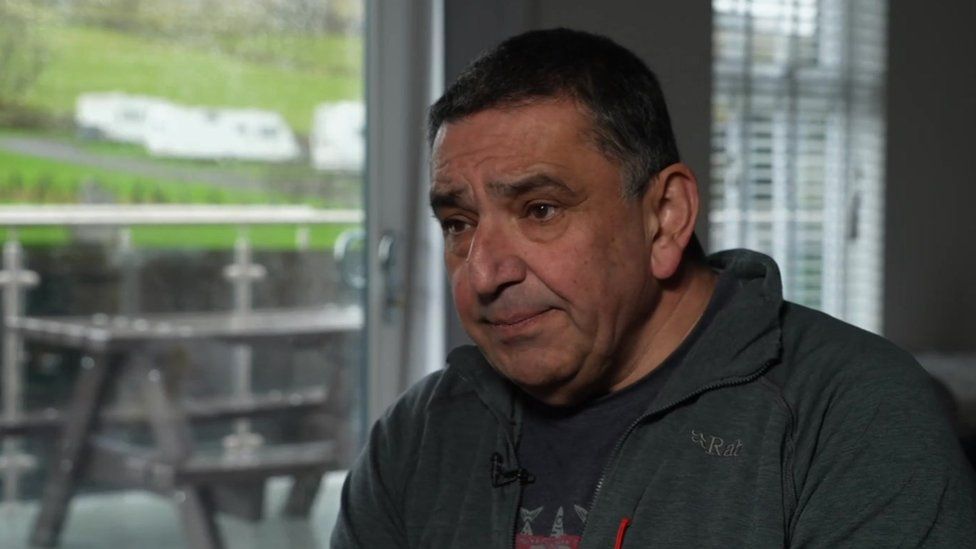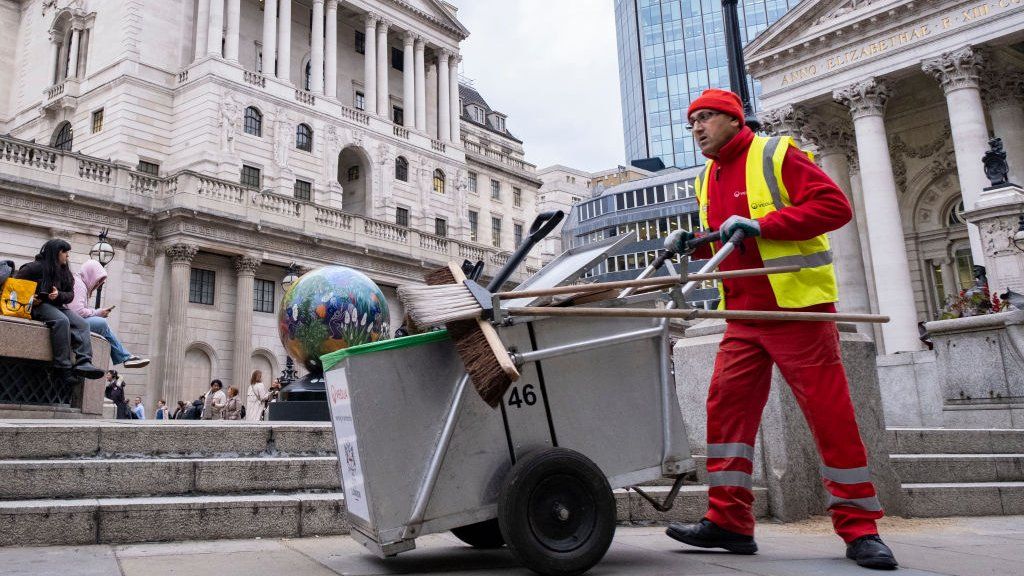
Wages have grown at the fastest rate in more than 20 years, but are still failing to keep up with rising prices.
Average pay, including and excluding bonuses, rose by 6.4% between September and November compared with the same time last year, official figures show.
It is the fastest growth since 2001, excluding the pandemic, when people got big pay rises after returning to work.
When adjusted for rising prices, wages fell 2.6%, with the gap between public and private sector pay near a record.
Private sector wage growth of 7.2% was more than double that of the 3.3% increase in the public sector in the three months to November.
The gap between the cost of living and wages has led to thousands of workers in both the private and public sector striking over pay and working conditions.
Strikes have disrupted everything from train services to postal deliveries and hospital care and more industrial action is set to take place in the coming weeks.
In total, 467,000 working days lost were lost due to strikes in November 2022 – the highest number in more than 10 years.
On Wednesday and Thursday, member of the Royal College of Nurses (RCN) will strike in England, while some ambulance staff in England and Wales plan to walk out on 23 January.
The cost of living is currently rising at its fastest rate in almost 40 years, largely due to the war in Ukraine.
Energy and food prices have shot upwards, leaving many people struggling to pay their bills. Inflation, the rate at which prices rise, is currently at 10.7%.
“The real value of people’s pay continues to fall, with prices still rising faster than earnings,” said Darren Morgan, director of economic statistics at the Office for National Statistics (ONS).
“This remains amongst the fastest drops in regular earnings since records began.”
Despite fears the UK economy is stagnating, the employment rate has remained largely unchanged, while the unemployment rate has edged up marginally.
Prime Minister Rishi Sunak has pledged to halve inflation this year, something many forecasters have predicted will happen as the cost of energy falls.
Chancellor Jeremy Hunt, said the UK labour market remained “resilient”.
“The single best way to help people’s wages go further is to stick to our plan to halve inflation this year.
“We must not do anything that risks permanently embedding high prices into our economy, which will only prolong the pain for everyone.”
But Jonathan Ashworth, Labour’s shadow work and pensions secretary, said the jobs figures showed the government was “totally bereft of ideas when it comes to tackling the cost of living crisis”.
“Real wages are plummeting, almost two and a half million people are out of work because of sickness and far too many people – especially the over 50s – aren’t getting the support they need to either stay in work or to go back to work,” he said.


It is to be expected in a time of high inflation that wages will grow faster than in a period of low inflation.
The average earnings rise of 6.4% (both including and excluding bonuses) may be the highest in cash terms, but because each pound buys you less and less, it’s one of the biggest pay cuts in real terms that we’ve seen this century.
For public sector workers on an average rise of only 3.3%, it’s a real-terms pay cut of over 5.5%.
In contrast to the public sector, you can see clearly private sector wage rises are being driven by employers contending with market forces in the shape of one of the tightest labour markets in decades, with vacancies still exceeding 1.1 million and unemployment at 3.7%.
Those in most urgent need of staff are bidding up wages – like in the professional, scientific and technical activities – where wages are up by 13.2%. Those employers know that if you ignore market forces in the labour market, you’ll find you can’t attract the staff you need to do the work. And those market forces are at work across the whole economy, in the public every bit as much as the private sector.

Ashley Webb, UK economist for Capital Economics, said the rise in wages would “only add further weight” to the case for the Bank of England to raise interest rates again, despite pay not rising in line with inflation.
Interest rates have been steadily put up by the Bank of England in a bid to try and control rising prices. Raising interest rates makes it more expensive for people to borrow money. In theory, this encourages people to borrow and spend less, and save more.
Mr Webb said the fact that the jobs market “remained tight and wage growth remained strong”, would “only increase the Bank of England’s fears that inflation, despite falling, is still persistent”.

David Khan, who runs a family business of five caravan parks employing 25 staff in Hawes Wensleydale, North Yorkshire, is one of many businesses struggling to recruit enough staff.
He said due to house prices and rent rising in his area, he was having to offer pay rises so his existing staff could afford to live nearby.
But like several businesses, higher wages aren’t his only worry. “Fuel is just terrifying pre-price increase we were probably paying £40,000 a year, we’re now paying £120,000 – that’s the bill so far and the year’s not even over yet,” he said.
-
-
1 hour ago

-
-
-
13 December 2022

-
-
-
3 days ago

-

